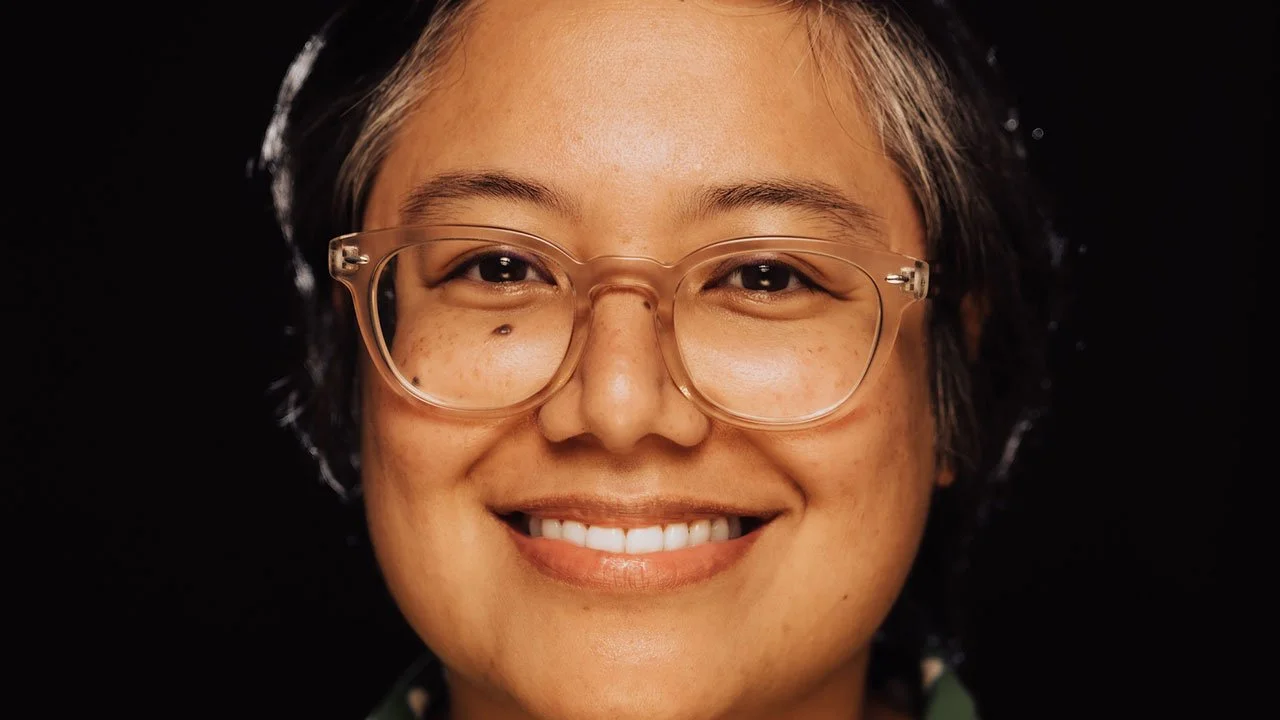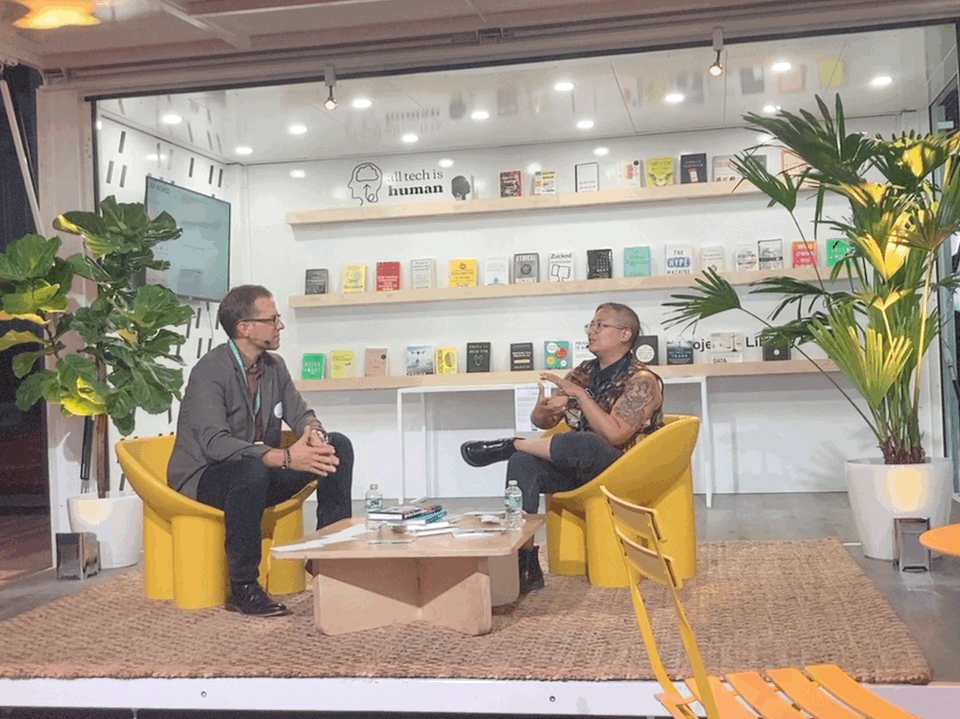All Tech Is Human Library Podcast Series #4 | Dorothy R. Santos
In the fourth conversation of a sixteen-part All Tech is Human Library Podcast interview series, storyteller, poet, artist, and scholar Dorothy R. Santos joins David Ryan Polgar for a conversation about the inspiration behind their award-winning docu-poetics work The Cyborg Prosody and how they envision a better tech future. Check out the full podcast series here.
Photo credit: Lili Siri Spira
About Dorothy R. Santos
Dorothy R. Santos (she/they) is a Filipino American storyteller, poet, artist, and scholar whose academic and research interests include feminist media histories, critical medical anthropology, computational media, technology, race, and ethics. They are a Ph.D. candidate in Film and Digital Media at the University of California, Santa Cruz as a Eugene V. Cota-Robles fellow. They received their Master’s degree in Visual and Critical Studies at the California College of the Arts and hold Bachelor’s degrees in Philosophy and Psychology from the University of San Francisco. Their work has been exhibited at Ars Electronica, Rewire Festival, Fort Mason Center for Arts & Culture, Yerba Buena Center for the Arts, and the GLBT Historical Society.
Key Takeaways
When we use technology to share our stories, people can see themselves in that dialogue. We never truly know how far we reach or the tremendous impact we have on others’ lived experiences.
Community can look like a small group serving as a building block for future growth.
The future of technology will incorporate listening, accountability, and intentionality for a more powerful impact.
Quotes
“And it was interesting when I presented The Cyborgs Prosody at a few conferences or at a few events…and the people who actually came up to me…I'm convinced that every Filipino person in that conference…which was not a lot, okay? I'm just gonna say that right now…came up to me and [said], "I've never seen a work that felt so close to my own experience of watching my parents, watching my siblings, or even myself being, coming to America and thinking about how am I going to assimilate? How am I going to acculturate? [What's] the vernacular that I'm gonna have to…grow accustomed to, be accustomed to? What are the ways that I have to signal myself and…presence myself through voice?” 5:24 - 6:16
“And so I, when I wrote this letter [to Halsean]…I think it was the following week, she DMed me on Twitter and said, ‘I found your letter…and what a pleasant surprise that you never know who is reading your work, or you never know who, how impactful it is until someone reminds you, tells you, meets you…and I've never met someone in this way.’ And I think those serendipitous moments can still very much happen. Even in this kind of illusion of a wildly connected world.” 8:21 - 8:53
“How do I allow someone to feel that they can evolve and transform and change in our conversation, in our dialogue, whether it's my students or collaborators, because I too am changing as I'm in dialogue with them or as I am co-creating with them.” 9:28 - 9:44
“I gave a talk to high school students this past week…I asked them a very complicated question: ‘Do you think that there's a difference between community and followship?’ And what I mean by followship…they live in that day and age where you can have a following. So what is the difference…if you have people that are following you and what do you think is your responsibility when you start to gain that following? And I say this because one of the students said, ‘I don't really think that there's a difference.’ [I] found it really interesting that he said that…then the more he kept talking, he said, ‘Oh, I think that there's a huge difference all of a sudden.’” 13:07 - 13:58
“When we listen to the many voices in our own personal lives, it's hard because sometimes you just wanna talk. You want to…you just wanna say what you need to say…There's so many people you wanna be, right? So many people want power. I had these conversations with another…peer mentor and he reminded me people want power, but they don't want accountability. And so you have to be careful what you say. And the only way that you could be careful and cautious and intentional about what you say is if you know how to listen.” 15:09 - 15:56
Learn More About Dorothy R. Santos
Website | Twitter
Credits:
David Ryan Polgar - Moderator
Dorothy R. Santos. - Interviewee
Unfinished Live - Producers



